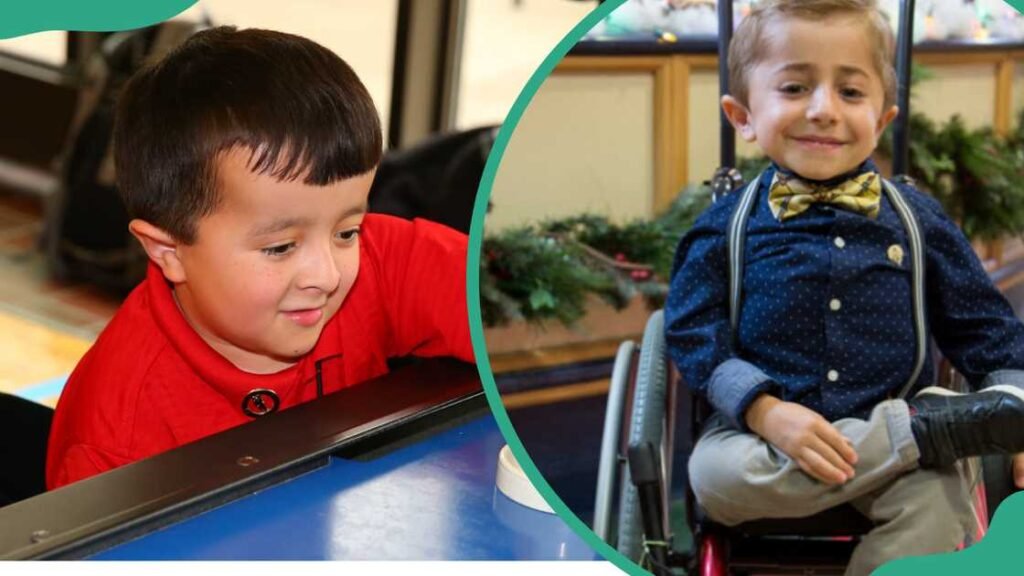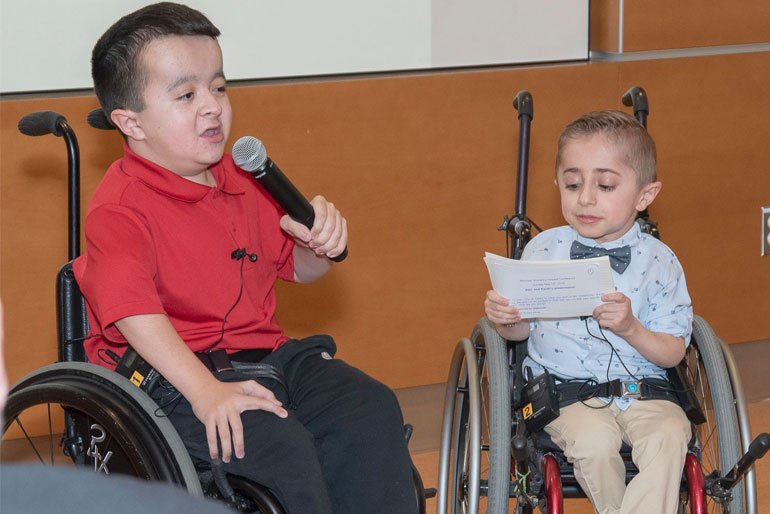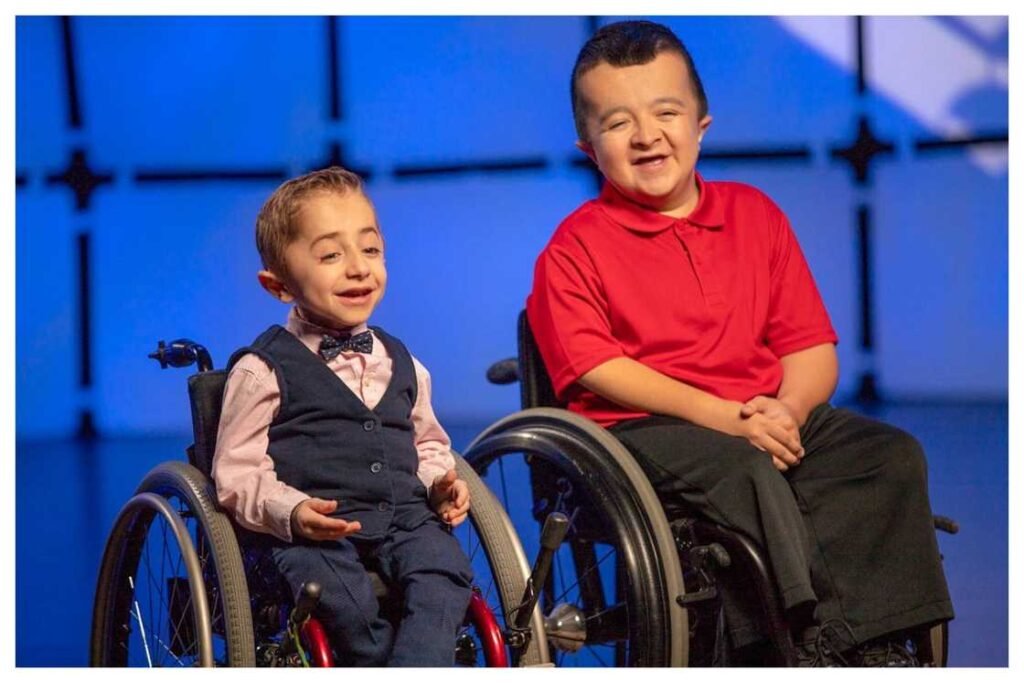The question on many viewers’ minds is simple but intriguing: do Alec and Kaleb get paid for commercials? These two charismatic young men have become the heart and soul of Shriners Hospitals for Children’s TV campaigns. They’ve touched millions with their charm, positivity, and powerful personal stories. But behind their national fame lies a curiosity—do they receive compensation for their efforts?
Let’s explore their backgrounds, their impact, and the truth behind how they’re rewarded for their appearances.
Alec and Kaleb Profile Biographie Table
| Detail | Alec Cabacungan | Kaleb-Wolf De Melo Torres |
| Full Name | Alec Cabacungan | Kaleb-Wolf De Melo Torres |
| Date of Birth | May 8, 2002 | Approx. 2009 |
| Medical Condition | Osteogenesis Imperfecta (Brittle Bones) | Osteogenesis Imperfecta (Brittle Bones) |
| Country | United States | Canada |
| Affiliation | Shriners Hospitals for Children | Shriners Hospitals for Children |
| Role | Patient & Spokesperson | Patient & Spokesperson |
| Campaign Debut | 2014 | 2014–2015 |
| Known For | National commercials, advocacy | TV commercials, advocacy |
Why People Ask: Do Alec and Kaleb Get Paid for Commercials?
Millions of viewers have seen Alec and Kaleb in heartfelt TV spots promoting Shriners Hospitals. Their sincerity, humor, and honesty draw viewers in, but naturally, many ask: do Alec and Kaleb get paid for commercials?

The reason this question comes up is because Shriners is a nonprofit, and viewers want to know how donor funds are used. It’s a fair and important question—and the answer reveals how advocacy and compensation coexist ethically.
Yes, Alec and Kaleb Do Get Paid for Commercials
To answer directly: Yes, Alec and Kaleb do get paid for commercials they appear in. Though Shriners is a nonprofit organization, like many others, it compensates individuals who take part in advertising and media work—especially those who help deliver a message as personal and impactful as Alec and Kaleb’s.
The compensation is for their time, travel, media appearances, and ambassadorial roles. They are not volunteers or actors—they are real patients who’ve dedicated years to promoting awareness.
Are Alec and Kaleb Employees of Shriners?
Although they are not employees in the traditional sense, they serve as official spokespersons. Their roles include:
- Appearing in TV and online commercials
- Giving speeches at fundraising events
- Participating in media interviews
- Promoting campaigns on social media
These duties are part of an ongoing advocacy partnership, and it’s entirely appropriate that they are compensated—just like any other brand ambassador in a high-profile campaign.
How Much Do Alec and Kaleb Get Paid?
While there is no public disclosure of exact figures, industry sources suggest that spokespersons in national campaigns can earn anywhere from $5,000 to $50,000 depending on usage rights, campaign reach, and duration.
Given how often Alec and Kaleb are featured, and the fact that they are core figures in a multi-year campaign, it is highly likely they are fairly and consistently compensated. However, neither of them nor Shriners has made these amounts public, likely for privacy reasons.
Are Donations Used to Pay Alec and Kaleb?

Another part of the question “do Alec and Kaleb get paid for commercials” is whether their compensation comes from donations. The answer is: no, not directly.
Shriners Hospitals has a separate marketing budget, which is common for nonprofits. Funds used for advertising, including paying spokespersons, typically do not come from direct patient care donations.
This ensures that donations go where they’re intended—to help children receive life-changing treatment—while still allowing Shriners to run effective awareness campaigns with people like Alec and Kaleb.
Why Their Role Matters
Their roles are not only about raising money—they also:
- Inspire hope among children and families facing similar challenges
- Raise awareness about rare medical conditions like osteogenesis imperfecta
- Educate the public on what Shriners Hospitals do
- Humanize the cause in a way no traditional ad could
That emotional authenticity is priceless—and worthy of professional recognition and compensation.
Their Journey Beyond the Commercials
The question “do Alec and Kaleb get paid for commercials” also opens a window into how this visibility has impacted their lives.
- Alec, now a young adult, is studying sports journalism and hopes to work in broadcasting.
- Kaleb continues to be involved with Shriners and is considered an emerging voice for pediatric care and awareness.
Their experiences have shaped future opportunities, including education, career skills, and media exposure that go far beyond a paycheck.
Conclusion
So, do Alec and Kaleb get paid for commercials? Yes, they absolutely do. Their hard work, advocacy, and emotional impact make them invaluable to Shriners Hospitals for Children’s mission. They are not just faces on a screen; they are dedicated young men who continue to inspire millions through their stories.
Their compensation reflects the time, energy, and emotional labor they commit to a cause they deeply believe in—and their work has helped save and transform countless lives.
Read more: Deborah DuBois Biography: Life, Career, and Legacy of the Private Star
FAQs
Yes, Alec and Kaleb are compensated for their work in Shriners commercials, events, and public appearances.
No, they are real patients of Shriners Hospitals who became beloved public spokespersons through genuine advocacy.
Typically, no. Their compensation comes from the hospital’s marketing and outreach budget, not directly from donations.
As of 2025, Alec is 23 years old, and Kaleb is estimated to be around 16.
Because they are so frequently featured in national campaigns for a nonprofit hospital, many are curious about their involvement and whether they are fairly compensated.


